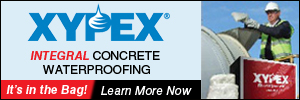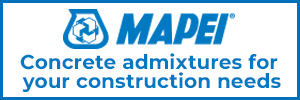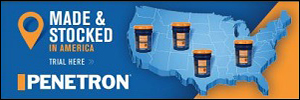 |
|||||||||||||||
|
|||||||||||||||
|
Association & Industry News
In light of recent pricing challenges facing the rental car industry, NRMCA has negotiated a significant members-only discount on car rentals. These negotiated discount rates can be used by any NRMCA Producer or Associate member employee for both work and personal travel. Please contact Alex Land at aland@nrmca.org for digital and print flyers advertising the program.
Thank you to the follow NRMCA members for supporting CONCRETEPAC in 2021. The Cabinet Club: $10,000 ($5,000 per spouse) The Chairman's Club: $5,000 The Congressional Club: $2,500 - $4,999 The Capitol Club: $1,000 - $2,499 The Grassroots Club: $500 - $999 The Dollar-A-Day Club: $365 Interested in learning how you can get engaged with NRMCA’s Political Action Committee, CONCRETEPAC? Please contact Taylor Drzewicki at tdrzewicki@nrmca.org. Engineering
By request of the West Coast Maritime Envision Working Group, NRMCA's Lionel Lemay and Colin Lobo recently delivered a presentation titled Sustainable Concrete for Marine Infrastructure. The group represents agencies responsible for the construction of infrastructure for ports, ferries and other facilities on the West Coast. Lemay discussed factors that impact the embodied carbon footprint of concrete and specification options for designers to consider by establishing a carbon budget for all concrete on a project by using NRMCA benchmarks and life cycle assessment tools. Lobo outlined the factors associated with marine exposure that impact the durability of concrete and applicable requirements to achieve durable concrete in industry standards and performance-based alternatives. During the subsequent discussion, NRMCA also provided several available resources and offered to assist the group on addressing sustainability and specifications for concrete. For more information, contact Colin Lobo at clobo@nrmca.org.
Buildings
The next session of the Global Concrete Summit is set for Wednesday, November 17, from 10 a.m. to 3 p.m. Eastern time. The sessions will focus on resilience, including planning and design that strengthens and renews the social and economic fabric of a community; designing and specifying high performance applications in buildings and infrastructure; and fortified building codes and community initiatives focusing on disaster resistance and adaptive reuse. Speakers include: 10 a.m. to noon, Session 4A
12:30 - 3 p.m., Session 4B
Register for free now at www.globalconcretesummit.com. For more information, contact Lionel Lemay at Llemay@nrmca.org or 847-922-7995. NRMCA recently verified a system level Environmental Product Declaration (EPD) program for Titan Virginia Ready-Mix. The EPD was developed in consultation with and based on a software tool by Climate Earth; the software tool integrates life cycle analysis impacts within batch operating software to generate EPDs when desired. The software, underlying life cycle data for each plant and EPD were reviewed and verified by Sustainable Solutions Corporation, a verifier in NRMCA’s EPD program. Ten plants in Virginia were included in the verification project, including Centreville, Clear Brook, Dumfries, Front Royal, Leesburg, Springfield (2 plants), Stafford (Fredericksburg), Sterling (2 plants). Public access to the EPD is available on the NRMCA EPD website and is listed as: NRMCAEPD: 20049 Titan Virginia Ready-Mix This directory of EPDs report the impacts of ready mixed concrete from 10 in VA. The trend in reporting environmental, social and governance practices is growing and, with environmental impact criteria being specified in green building construction documents and proposed in state and local legislation, procurement decisions are expanding beyond price and performance. To date, the North American ready mixed concrete industry, including material suppliers, have invested into ~100 verified EPDs with many products/mixes and is a leading materials industry that reports environmental impacts. As part of the Build With Strength campaign, NRMCA promotes Strength Through Transparency for member and industry competitiveness in the green building marketplace and the trends toward product and company transparency. For more information, contact James Bogdan at jbogdan@nrmca.org or 412-420-4138. Recently, the promotion team of Dom DiCenzo, executive director of the Connecticut Concrete Promotion Council and Build With Strength (BWS) Northeastern Region Promoter Doug O’Neill exhibited at the Connecticut chapter of the American Institute of Architech's (AIA) CACX’21 Expo. O’Neill presented the Top 10 Ways to Reduce Concrete’s Carbon Footprint to 24 attendees during an education session while also manning the BWS booth with DiCenzo during the two-day event (photos show the BWS booth and O'Neill at podium during the education session).
The sustainably-focused AIA members were appreciative of the support from BWS Connecticut; several leads were generated along with some good feedback, culminating with DiCenzo announcing the winner of a concrete bow tie give-a-way to a lucky booth visitor. For more information, contact Doug O'Neill at doneill@nrmca.org. SEO
This past weekend following the Occupational Safety and Health Administration’s (OSHA) November 4 release of its anticipated Emergency Temporary Standard (ETS) requiring employers with 100 or more employees to require their employees to either get vaccinated against COVID-19 or be subject to weekly testing, the 5th Circuit Court of Appeals granted a temporary stay of the ETS. The lawsuit, filed by the states of Louisiana, Mississippi, South Carolina, Texas and Utah, asserted that the OSHA ETS held “grave statutory and constitutional issues,” which the court upheld. The Department of Labor (DOL) immediately responded by stating that, “the Occupational Safety and Health Act explicitly gives OSHA [the Occupational Safety and Health Administration] the authority to act quickly in an emergency where the agency finds that workers are subjected to a grave danger and a new standard is necessary to protect them. We are fully prepared to defend this standard in court.” Both the states and DOL have been given deadlines for filing responses this week, likely leading to a final determination on a permanent suspension of the ETS by week’s end. This lawsuit is also just one of many from other states, businesses and many stakeholders challenging the validity of the ETS. As these additional lawsuits are litigated it will paint a clearer picture about the need for compliance with the ETS. Should the ETS be upheld by the courts and allowed to go into effect, the rule broadly requires covered employers to “develop, implement, and enforce a mandatory COVID-19 vaccination policy, with an exception for employers that instead adopt a policy requiring employees to either get vaccinated or elect to undergo regular COVID-19 testing and wear a face covering at work in lieu of vaccination.” Below is a broad synopsis of the ETS as it relates to the ready mixed concrete industry. While not exhaustive, the summary touches on what NRMCA believes to be the larger points of the ETS for general compliance and how it impacts mixer drivers. Does the ETS Apply to the Ready Mixed Concrete Industry? If a ready mixed concrete industry employer has 100 or more employees company-wide, then the employer is covered by the rule. Unfortunately, the threshold of 100 or more employees applies to the employer/company as a whole, NOT per individual location. If an employer has 99 or fewer employees company-wide, it is not covered by the ETS. What Does the ETS Require? Covered employers must establish a written policy to implement the ETS within the company. The written plan should include items such as:
To assist employers with this lengthy and detailed requirement, OSHA has created a template vaccination/testing policy document. Are There Any Exceptions to the ETS? Exceptions to the ETS are few. The ETS specifically does NOT cover employers that are covered by either OSHA’s Healthcare ETS from earlier this year and employers covered by the Federal Contractor Vaccination Mandate since both sets of employers fall under different COVID-19 requirements. As well, when determining the number of employees in a company, the ETS does NOT require an employer to count independent contractors and leased employees, only full time, part time and temporary workers. The ETS also does NOT apply to “employees who do not report to a workplace where other individuals such as coworkers or customers are present, employees while they are working from home, or employees who work exclusively outdoors.” Essentially this means the ETS does NOT apply to remote employees or those who work outdoors. Upon further examination of the phrase “employees who work exclusively outdoors”, the text of the ETS discusses this: “An employee will only be covered by the exemption in paragraph (b)(3)(iii) if the employee works exclusively outdoors. Thus, an employee who works indoors on some days and outdoors on other days would not be exempt from the requirements of this ETS. Likewise, if an employee works primarily outdoors but routinely occupies vehicles with other employees as part of work duties, that employee is not covered by the exemption in paragraph (b)(3)(iii). However, if an employee works outdoors for the duration of every workday except for de minimis use of indoor spaces where other individuals may be present – such as a multi-stall bathroom or an administrative office – that employee would be considered to work exclusively outdoors and covered by the exemption under paragraph (b)(3)(iii) as long as time spent indoors is brief, or occurs exclusively in the employee’s home (e.g., a lunch break at home). Extremely brief periods of indoor work would not normally expose employees to a high risk of contracting COVID-19; however, OSHA will look at cumulative time spent indoors to determine whether that time is de minimis. Thus, if there are several brief periods in a day when an employee goes inside, OSHA will total those periods of time when determining whether the exception for exclusively outdoors work applies. Finally, to qualify for this exception, the employee’s work must truly occur “outdoors,” which would not include buildings under construction where substantial portions of the structure are in place, such as walls and ceiling elements that would impede the natural flow of fresh air at the worksite. Workplaces that are truly outdoors typically do not include any of the characteristics that normally enable transmission of SARS-CoV-2 to occur, such as poor ventilation, enclosed spaces, and crowding.” This language could apply to mixer drivers and thus exempt them from vaccination/testing/masking requirements under the ETS if their time spent indoors was brief and infrequent (too small to be deemed worthy of consideration) and they remain alone when inside the cab of their truck. *This specific language matches the discussions NRMCA has had with DOL, OSHA and White House OMB about the unique nature of when, where and how mixer drivers conduct their work. It’s important to understand that while the employees outlined above do NOT have to comply with the requirements of the ETS, they are required to be counted in the total number of employees. For example, an employer would still be covered under the ETS if it had 150 employees, but 100 of them were 100% remote. There would still need to be a written plan created and followed for the other 50 employees for vaccinations and/or testing. Compliance Dates - The ETS has two different compliance dates associated with specific items: December 5, 2021
January 4, 2022
What Else? While the ETS preempts state and local requirements for COVID-19 procedures, those state and local requirements may still be required in addition to the ETS. An employer’s written plan does NOT have to be submitted to OSHA. However, if requested, the employer is required to provide its written plan to OSHA within 4 business hours of the request. As well, an employer’s written plan should be “readily accessible to all employees”. If an employer already has a vaccination and/or testing requirement in place, that plan will need to be updated, amended or changed to comply with the requirements of the ETS written plan requirements. Workplace-related COVID-19 deaths shall be reported to OSHA within 8 hours and in-patient hospitalizations shall be reported to OSHA within 24 hours of learning of those instances. Resources Click here for ETS language, materials, FAQs and fact sheets. You may also contact Kevin Walgenbach at kwalgenbach@nrmca.org. Government Affairs
Late on Friday, November 5, after a day tense negotiations and political drama, the House of Representatives passed the bipartisan infrastructure bill, the Infrastructure Investment and Jobs Act, by a bipartisan vote of 228-206. The bill will now go to President Biden’s desk for his signature and become law. This bill provides a five-year reauthorization of federal highway programs – set to expire on December 3 after two short-term extensions – and makes historic investments in the nation’s infrastructure needs. The package represents the priorities that NRMCA’s Government Affairs Committee set out and that NRMCA’s Government Affairs team has advocated for: a bipartisan, five-year reauthorization at robust funding levels and key policies like environmental permitting reforms, industry-specific exemptions from new Buy America requirements, dedicated funding for bridges and major projects, and investments in resilience. Over the past years, many NRMCA members have spent countless hours of their personal time lobbying Congress on this critical priority. Victories like this would not be possible without the engagement of individuals and companies like these and NRMCA is appreciative of their support. With the certainty of a five-year surface reauthorization and the increased funding for America’s infrastructure, passage of the Infrastructure Investment and Jobs Act represents a huge victory for NRMCA, our members and our allies in the construction industry. America’s ready mixed concrete producers serve a critical role in building and maintaining our nation’s infrastructure and supporting economic development. NRMCA’s Government Affairs team looks forward to working to ensure that the implementation of this legislation allows the industry to continue its important work. For more information, contact AndrewTyrrell at atyrrell@nrmca.org. NRMCA has joined a coalition of trucking industry associations in sending a letter to President Biden urging adoption of policies that would contribute to solving the supply chain crises. The letter underscores some of NRMCA’s longstanding policy priorities, including the DRIVE-Safe Act, workforce development and Hours of Service flexibilities.
For more information, contact Andrew Tyrrell at atyrrell@nrmca.org. Calendar
Please note that e-mail and direct links to each event listed below can be accessed from NRMCA's Web site. November 17, Free Virtual Conference November 30 - December 2, Orlando, FL December 6 - 9, Online Course December 7 - 10, Orlando, FL *Sold Out December 15, Free Virtual Conference 2022 February 8 - 11, Phoenix February 15 - 17, Dallas February 15 - 17, Online Course February 22 – 24, Smyrna, TN March 22 - 24, Smyrna, TN April 5 - 7, Dallas April 19 - 21, Smyrna, TN September 29 - October 3, Aurora, CO |
|||||||||||||||
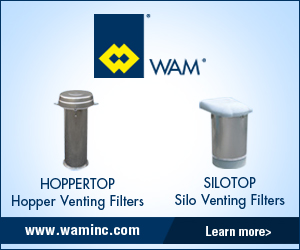





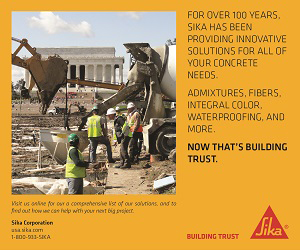

.jpg)
